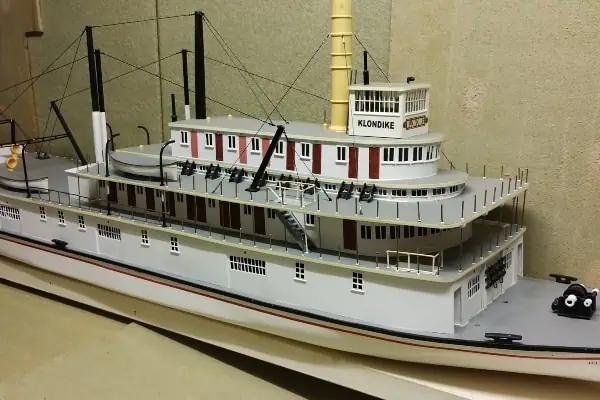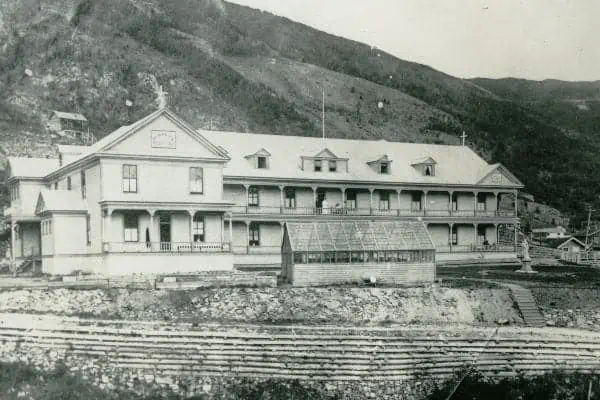There are many gravesites marked on the downhill side of Mary McLeod Road, but the only one with a beaten path to it belongs to Jan Welzl, a man for whom Thomas Wolf’s famous phase, “You can’t go home again,” might have been written.
Welzl was born in Zábreh, Moravia, in 1868, at a time when that city was part of the sprawling Austro-Hungarian empire. He died many years later in Dawson City, in 1948.
Originally a locksmith by trade, he is now best known, mostly to people in the Czech and Slovak republics, as a spinner of marvellous yarns, collected in several books that were ghost written by Czechoslovakian journalists. The best known of these is Thirty Years in the Golden North.
Welzl left his homeland and tramped across Siberia between 1893 and 1898. He went to sea, was eventually shipwrecked and apparently washed up on the coast of Alaska, where he lived for some years. It is said he was a hunter, trapper and trader in both the Russian and the American North.
He didn’t go home for many years, and when he finally did, things had changed. The First World War had happened and the empire he had left behind was gone.
After much debate in Paris in 1919, the country known as Czechoslovakia had been created (only to split again as part of the disintegration of the Soviet Union), and the Czech part of that fusion was where Moravia was located.
Welzl lectured about his adventures and eventually thought he might sell a book of them. But while he was a storyteller, he wasn’t much of a writer. Three journalists cobbled Thirty Years and another book together and both became best sellers.
Welzl decided to go back to Alaska, but his travels took him only as far as Dawson City, where Pierre Berton and John Gould both remember him as the “Perpetual Motion Man”.
In Prisoners of the North, Berton describes him as “a rough-hewn Slav … who had come to Dawson from Prague by way of the Arctic, so he claimed, with the help of the Inuit. He spent his time trying to develop a perpetual motion machine in an abandoned warehouse while bemoaning the fact that he had sold the rights to his memoirs, Thirty Years in the Golden North, for one hundred dollars before it became a Book-of-the-Month Club best-seller.”
Welzl is remembered as a hero in the Slavic nations, and it is people from his homeland – both visitors and those who live here – who located his gravesite and made it into a place of pilgrimage, complete with Czech flag, a plaque telling his legend and an engraved marker below a cross.
Beneath a bark covering, one can find a plastic case containing maps, papers, a copy of his book and a log book in which visitors can record their thoughts.




